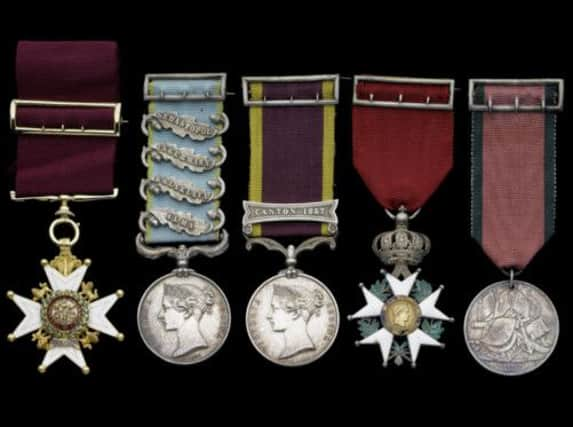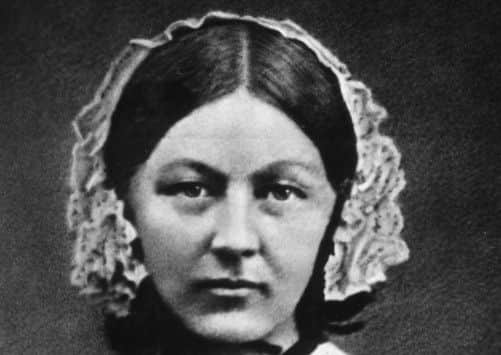Florence Nightingale doctor’s medals auctioned


Dr Arthur Anderson was serving as the chief medical officer with the British Army in the Crimea when the “Lady with the Lamp“ was stricken with “Crimean Fever”, now known to have been brucellosis.
The nursing pioneer was acutely ill for twelve days, but later recovered and returned her duties at the hospital in Scutari.
Advertisement
Hide AdDr Anderson, who was in charge of her care, later become the Inspector General of Hospitals for the Army. He retired from military service in 1867 and died in Pitlochry in 1896, aged 81.


The medals he was awarded during a lifetime of military service will go on sale next week at Bonhams auction house in London when they are expected to go under the hammer for between £5000 and £7,000.
The medals include the Order of the Bath, the French Legion of Honour, the Crimea Medal 1854-56, with four bars, Alma, Balaklava, Inkermann, Sebastopol, and engraved Staff Surgeon A.Anderson. Dr Anderson was also awarded a medal for the Second China War of 1857 to 1860.
Inspector General Arthur Anderson was educated at Maris College in Aberdeen and graduated with a medical degree from Edinburgh University in 1834. He served as a surgeon with the 82nd Foot, 10th Dragoons and the Rifle Brigade, before being appointed a Surgeon Major in 1854. He became Deputy Inspector General in 1858 and Inspector General of Hospitals in 1862.
John Millenstead, head of the coins and medals department at the auction house , said that Dr Anderson had been called in to treat Ms Nightingale as he was one of the most senior doctors serving in the Crimea.
He said: “He treated Florence Nightingale. Obviously she was very important at the time and the top doctor was given the task of looking after her.
Advertisement
Hide Ad“He was medically trained and served as a surgeon and got promoted up the the ranks to Inspector General of Hospitals so he was very active dealing with the wounded troops in the Crimea and in China afterwards.”
Mr Millenstead said the medals were still in almost pristine condition. He said: “They are in really good condition - there’s a little bit of enamel damage to one of them but you’d expect that over time. I think they will primarily attract medal collectors but you do get people who collect things related to their area, so it’s certainly possible they’ll go back to Scotland.”
Advertisement
Hide AdAccording to contemporary accounts, Ms Nightingale fell ill from “Crimean fever“ in May 1855 while visiting hospitals in the Balaclava area. Dr Anderson wrote that she had been struck down by “as bad an attack of fever as I have ever seen.”
Her recovery was slow, and three months later she was described as being “white-faced, extremely weak and looking much older than her age.” Her “Crimean Fever” is now known to have been brucellosis.
Although she recovered sufficiently to resume her nursing duties at Scutari she periodically became chronically ill and bedridden as the result of Crimean fever through the 1870s.